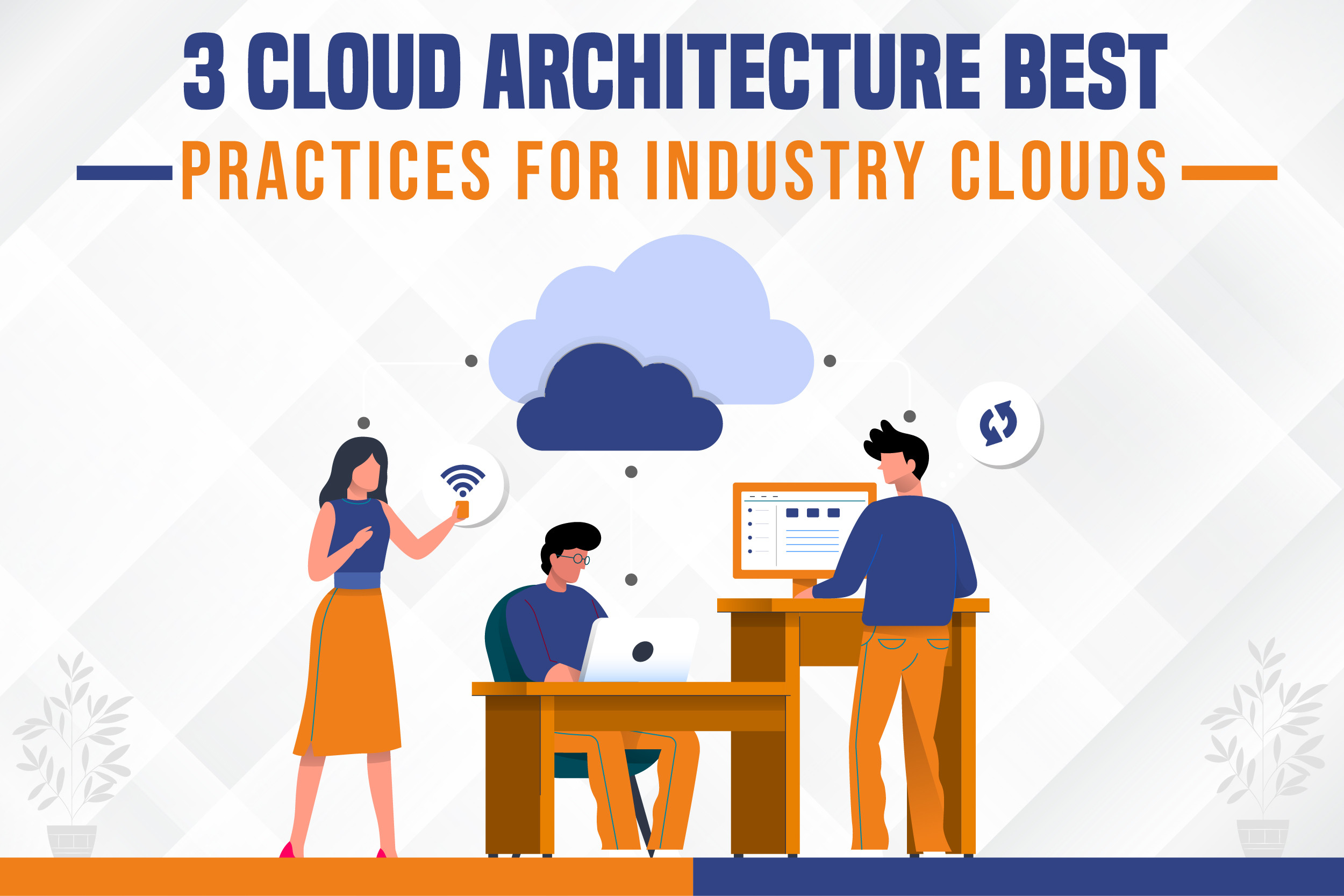
3 Cloud Architecture Best Practices For Industry Clouds
The idea of industry clouds is not very novel, but as businesses look for greater returns on their cloud computing expenditures, interest from the business community is growing daily and investment in industry clouds is increasing. Businesses that jump on the industrial cloud bandwagon now will succeed in the future as industry-related technology improves and becomes more widely accessible.
Despite working with professional services companies and industry leaders in the banking, retail, manufacturing, healthcare, and other sectors, many large public cloud providers do not have industry-specific knowledge. This is why experts who are able to create scalable cloud services and experts who are familiar with industry-specific procedures and data collaborate.
Now it's our responsibility to learn how to properly install business cloud-based technologies. When switching to a cloud service provider or creating whole new systems and data repositories, keeping the following best practices in mind is imperative.
How To Architect Cloud Systems That Utilize Industry-Specific Cloud Services: 3 Best Practices
1. Recognize The Expense And Intricacy Of Service Integration, And Weigh Your Options
This scenario is not unknown to us. Service-oriented architecture ideas, which are fundamental to today's clouds, predominated in IT years ago. We have also witnessed it while going through Technical Program Management Training. We frequently searched for sector-specific services or APIs to avoid having to create those services from scratch. Websites like Programmableweb.com, which is now defunct, emerged as markets for these APIs, allowing businesses to select from both generic and helpful services as well as ones tailored to certain industries.
The question now is something different from which industry-specific service we must use; rather it's more like if any industry-specific service needs to be used at all. The phrase "build vs purchase" sums up this idea the best. Companies must weigh the costs of building and running a service themselves against the costs of integrating and running one. Most of us have been conditioned to believe that it is always wise to utilize OPC (other people's code) rather than creating anything from scratch.
Nevertheless, there are frequently unforeseen costs and complexity in this situation to take into account. Simply ask the questions and perform the calculations to learn this best practice. You'll discover that the expense and complexity frequently result in greater value for the company, but not always.
2. Security Must Permeate Every Aspect Of Life
Never assume that industry-specific clouds are secure. Those offered by the bigger cloud providers could be safe as independent services, but if you combine and use them as part of your solution, they might compromise your privacy.
The best course of action in this situation is to incorporate security into your own apps that make use of industrial clouds. These concepts would be clearer once you indulge yourself in more Technical Learning. Additionally, keep integration in mind to avoid opening any new security gaps. When two objects are taken into consideration to be secure on their own, you might create dependencies that completely alter the security profile.
3. Check all around for services tailored to your industry
One common error is the use of a single provider's industry-specific cloud services solely. It's easy to restrict oneself to a market-based solution or possibly a service that is local to your sector. However, the best-of-breed alternative is frequently found to be on another cloud or coming from a standalone independent industrial cloud provider.
The best course of action in this situation is to not restrict the sector-specific services under consideration. Numerous services will emerge over time to do activities like risk analytics for investment banking, for instance. By selecting the less optimal option, you will reduce the value that is given back to the company. In a nutshell, it can be said that when you make less optimal judgments, your ROI decreases. Your understanding levels would be high once you acquire training from an ideal Technical Program Management Training.
Final Words
These are a few examples of typical best practices that you may use to plan and develop your cloud apps and database. Due to the individual nature of every organization, creating and maintaining the cloud requires expertise. Search for businesses that have years of experience and specialized knowledge in creating and constructing cloud solutions. Once you are done, make contact with them to configure, architect, migrate, protect, manage, and continuously improve your cloud for measurable business outcomes.
